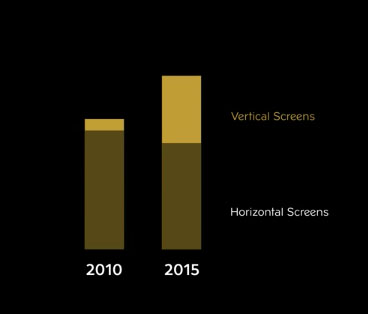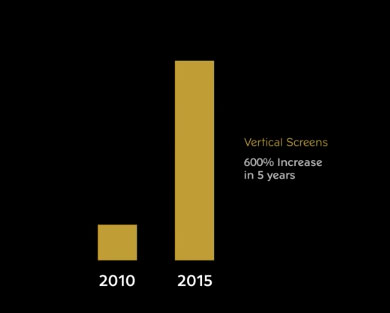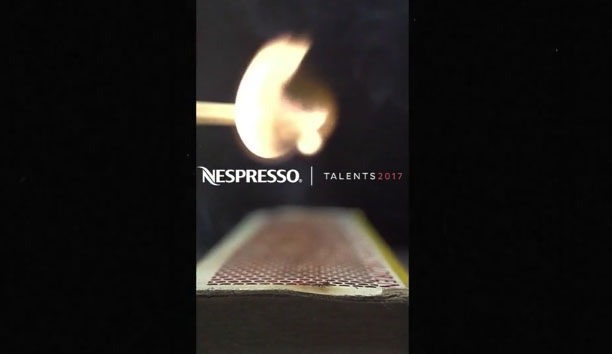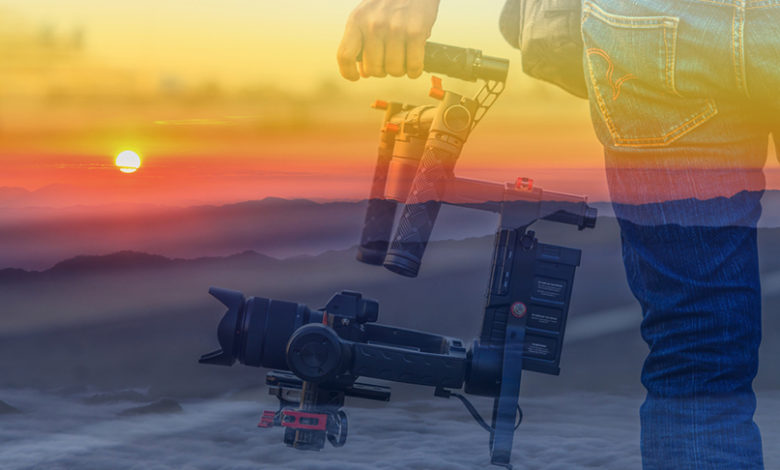Why are videos always landscape-shaped? Well, actually, they’re not – not any more, which is great news for mobile marketers. Here’s a case study that proves the growing uptake of the mobile-sized vertical video and a brand that is rewarding entrepreneurial video-makers, encouraging them to take part in a talent hunt prior to the Cannes Film Festival. How talented are you?
Nobody denies the way global brands market themselves is changing. Creatively, the way major businesses – and plenty of smaller ones – think today, is unlike anything that has gone before. The thirst to find shareable content is unquenchable, with the ultimate quest to find something that will quickly go viral.
In recent years, crowdsourced video has taken off in a big way. It’s an ever-changing medium that knows no boundaries and has a voracious creative appetite.
Video crowdsourcing is, for the uninitiated, individual filmmakers around the world who use a video production platform to create short films for major brands. Brands will submit their brief – plus the rewards on offer for the best – and the platform then asks its members (the crowd) to produce their interpretation of the brief.
Userfarm, the first video crowdsourcing platform, launched in 2009, has a crowd of more than 120,000 filmmakers and is the leader in its field.
To better understand the medium, I took a closer look at the recent Nespresso initiative that helped shape the way mobile and tablet video is viewed and filmed.
Crowdsourced video and Nespresso would always get together at some point – it just had to happen. And here’s why.
Doing things differently – the vertical video challenge
Nespresso have always been innovative, embracing new ways of promoting their brand subtly. An official partner of the Cannes Film Festival for the past nine years, Nespresso were constantly on the lookout for a way to combine film innovation and new ways of enhancing their reputation for doing things differently. Their Cannes award – the Grand Prix Nespresso – has become a coveted prize at the festival, awarded to the director of the best debut film.
They hatched a strategy to use film to build an innovative platform for filmmakers around the world – but not expensive marketing agencies, just talented people with imagination and the ability to create something fresh from a simple brief. It was another way to convey messaging while building brand equity in a unique way.
Nespresso chose Userfarm to host the contest, hoping to focus on talent and the brand’s younger audience in the process.
Younger audiences are watching more mobile content than ever before, and, interestingly, they are doing it vertically.
For so long landscape-shaped video has been the social media tool of choice, particularly for Twitter and Facebook. Vertical video was considered the work of uneducated amateurs. Yes, vertical video had to fight its way out of a corner, but Nespresso were onto it and, sniffing an opportunity, launched a challenge to ambitious filmmakers the world over – to tell their tall stories in an innovative and surprising way – and so a vertical video contest launched on Userfarm.
To inspire the contestants, Nespresso commissioned three breakthrough short filmmakers to each create a video that would both inspire and showcase the opportunities vertical video held.
Nespresso Talents 2016 was launched at the Berlinale Film Festival, amplified online with an exclusive content partner with the promise that the three winners’ efforts would be showcased at Cannes later in the year.
After the deadline closed on Userfarm, Nespresso were pleasantly surprised to find that there had been 384 submissions from 38 different countries – they knew before they even viewed the entries that the contest had been a success and the varied backgrounds and ideas behind the competitors made it a tough call to judge just three winners.
With 85 million impressions, 1,700 mentions and 99.7% positive sentiment towards the campaign, it was no surprise that the press and bloggers fell for vertical format and, at Cannes, were attracting huge attention and giving the three winners a truly global showcase of their talents.
The net result?
Nespresso enhanced their credentials in film, building on innovation and engaging a wider audience beyond physical platforms. They also confirmed the emergence of vertical video as a credible medium, completely changing the snobbish attitude that had been prevalent for so long.
Nespresso encouraged storytelling to be both different and even challenged the long established theory ‘landscape good, vertical bad’ while simultaneously enhancing their reputation with the filmmaking community.
It also underlined the power of video and crowdsourcing.

Nespresso embraced the appeal and innovation offered by vertical-shaped video, instead of the more usual landscapes.
There is a whole planet of potential genius to tap into, it seems. Having the guts to try something different can really pay off, if the brief is on the money, the video platform is right for the brand and the creative juices are encouraged to flow.
Nespresso 2017 will build on the first year’s successes via a series of initiatives, many centred around Cannes.
It will be more scalable and will support local amplification strategies and a fresh distribution approach which, in turn, will increase local PR activities and opportunities.
Engagement with media and consumers will further be enhanced through masterclasses for filmmakers, while encouraging local talent through partnerships with key local media,
Much has been learned in the first year by Nespresso, who have again turned to Userfarm to promote the contest via the Userfarm crowd – it promises to be bigger and better than 2016, all the while associating Nespresso with innovation, creativity and thinking outside the box.
What’s to lose?









Leave your thoughts